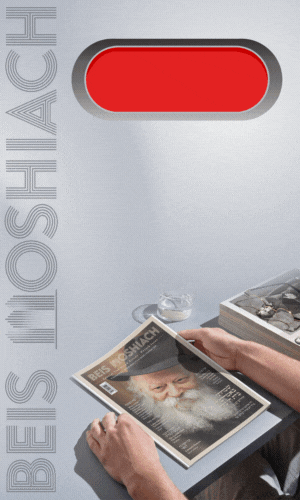In Defense of Religion and Tolerance
When I was on vacation visiting my Lubavitch son, Shaya, during the December holidays in Brooklyn, N.Y., I had occasion to do lots of reading. Among the writings that got me thinking was a recent biography of Menachem Mendel Schneerson, the seventh Lubavitcher Rebbe, titled “Turning Judaism Outward,” By Marty Rochester • Full Article
Did you hear that the annual National Prayer Breakfast event at which President Barack Obama spoke Feb. 5 is being renamed the National Reflection Breakfast? Just kidding, although not entirely.
I wish to offer a defense of religion, not the virulent form represented by the terrorist attack on the Parisian newspaper Charlie Hebdo, but the tamer version practiced by most people of faith.
When I was on vacation visiting my Lubavitch son, Shaya, during the December holidays in Brooklyn, N.Y., I had occasion to do lots of reading. Among the writings that got me thinking was a recent biography of Menachem Mendel Schneerson, the seventh Lubavitcher Rebbe, titled “Turning Judaism Outward,” and The New York Times op-ed page on Christmas Day, Dec. 25.
You could not find more diametrically opposite views of religion than these two texts, one affirming its central importance in contemporary life and the other expressing skepticism, if not outright loathing, of the institution.
The Rebbe, who was trained as a rabbi and a scientist (he had studied electrical engineering and math at German and French universities), considered religion not only consistent with science but also a superior system of wisdom and knowledge. He believed that spirituality in general and Judaism in particular, anchored in the study of the Torah, were critical to an enlightened humanity. As such, he worried about what he saw as a secular turn in America and elsewhere away from God. He was so concerned about this trend that he supported nondenominational school prayer in the public schools, at the very least a moment of silence each morning.
Clearly, he was bucking not only the cultural tide but the First Amendment to the Constitution, which the U.S. Supreme Court in 1985 ruled prohibited required religious observances of any kind in public schools.
One can debate the logic of the court’s decision; after all, Congress opens every session with a prayer. I am somewhat agnostic myself on this issue. The court’s position has evolved in recent decades to allow a moment of silence in public schools as long as it includes “contemplation” as an option alongside “silent prayer.”
But many still oppose anything remotely resembling religion, their depth of opposition at times exceeding the dogmatism of the Catholic Church.
My point here, though, is not to discuss legal issues but larger societal ones. In particular, it would seem that the First Amendment has been perverted, as freedom of religion, which rightly was considered by the Founding Fathers as a sacred element of democracy, has increasingly morphed into freedom from religion.
In an effort to avoid any governmental establishment of a particular religion, we are coming close to demolishing religion altogether as a presence in the public square. In effect, we have privileged atheists, who are hardly a majority of the country.
Indeed, a recent survey by the Pew Forum on Religion and Public Life, based on interviews of more than 35,000 Americans age 18 and older, found that only about 1 percent of Americans call themselves atheists. In contrast, 80 percent self-identify as Christians, 5 percent as non-Christians (Jews, Muslims or some other religion), and 15 percent as “unaffiliated.” Yet, to read the nation’s leading agenda-setting media, one would think that to be religious is to be a member of a retrograde, fringe group.
Witness The New York Times op-ed page I referred to above. It reflects just how dominant the atheist worldview has become, at least among our cultural elites. I say this because here it was Christmas Day, and half of the articles the Times chose to run on the page were anti-religion, with headlines such as “Religion Without God” and “An Atheist’s Christmas Dream.”
How odd it was to allow atheists to hijack one of the most hallowed religious holidays of the year, celebrated by a vast majority of Americans. What’s next – giving the op-ed page over to atheists to comment on the Day of Awe, Yom Kippur?
(I cannot help noting that the Times is a selective provocateur. Being ever so politically correct, as well as gun-shy, it would not dare assign the op-ed page to atheists to trash Ramadan, much less publish caricatures of the Prophet Muhammad, as Charlie Hebdo did, lest it be accused of the sin of promoting Islamophobia.)
The “Religion Without God” article approvingly refers to “God-neutral faith growing rapidly, in many cases with even less role for God than among Unitarians.”
Sorry, but a godless religion strikes me as almost an oxymoron, like jumbo shrimp. If you don’t like God, fine, but don’t conflate religion with mere ideology or a community of kindred spirits or a social action network. And don’t use terms such as “God-neutral” when, in fact, intellectual honesty demands admitting one is anti-God.
At least the “Atheist’s Dream Christmas” article is more up front about the author’s palpable contempt for Christmas (as well as Hanukkah), as he comments on “the reasons to dislike organized religion.”
The ultimate chutzpah of the Times is naming as a primary op-ed columnist on religion an avowed atheist, Frank Bruni. This seems almost akin to recruiting someone who denies any existence of racism in America to comment on racial matters on MLK Day or during Black History Month.
Mark Twain famously said: “Faith is believing in something you know ain’t true.” I have to admit that, for me, religion — in my case, Judaism — is purely an article of faith, something that I accept but not something I can prove empirically. Being a scientist who understood empirical evidence, the Rebbe also struggled with this question. However, he was able to reconcile the black hat with the white lab coat by taking the view that some evidence for God could be found in the real world and, in any event, empiricism should not be the basis for faith. He would simply argue you should believe in God with your intellect, not because of your intellect.
Whether one believes in a deity, and which deity one prays to, is a deeply personal matter. We should not be ridiculing those who choose to pray to no God, and they in turn should not be ridiculing the faithful.
As for public displays, let the atheists along with the non-atheists have some space to express themselves. If atheists have a problem with this and want to impose their will, insisting God is on their side when it comes to a strict wall between church and state, then perhaps we should encourage a protest movement of the 99 percent against the 1 percent, à la Occupy Wall Street, on behalf of religious tolerance.
285
Join ChabadInfo's News Roundup and alerts for the HOTTEST Chabad news and updates!










































